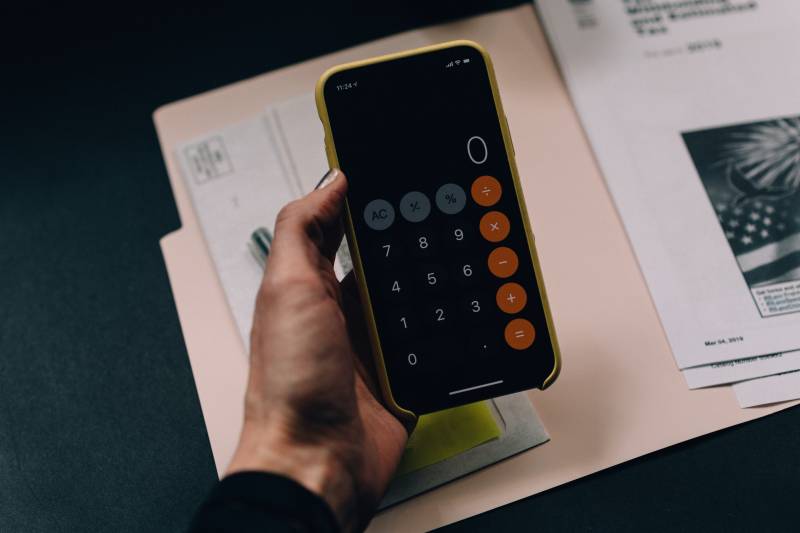So you’re thinking about buying a vacation rental in Hawaii, and renting it out for a profit?
This could be a fantastic idea, a great source of income, and give you one more reason to visit the beautiful Hawaiian Islands regularly! More than likely at some point in this process you’re going to asking yourself…
What Do I Need to Know Before Buying a Hawaii Vacation Rental?
Here are 4 things to know and do before you buy a vacation rental in Hawaii.

1. Work With a Realtor Who Knows the Zoning Laws.
In Hawaii there are only certain areas that can be used for short term rentals. You can’t just buy any house or condo and be allowed to put it up for rent on Airbnb. Many locations in Hawaii only allow long term rentals, which are defined by the state as a rental of 180 days or more.
2. Account for GET Tax & TAT Tax When Estimating Potential Income.
In Hawaii, there is a (General Excise Tax) GET and (Transient Accommodation Tax) TAT that you must pay when you rent out your short-term rental property in Hawaii. Rates vary slightly by the island, but 15% is a good starting point for a combined total. GET and TAT are charged against the gross rent you receive. So, If you rent out your condo for one night and get $100, your tax may be about $15.

3. Is the Price Too Good to be True?
If you’re looking online at condos and search by the lowest price first, it may be confusing why one 2 bedroom unit is 3 times as much as another.
The reason for this could be due to things like extremely high maintenance fees, a leasehold property vs. a fee simple property, or a monthly special assessment fee. Remember, there is always a reason why a property is listed at a particular price.
4. Get to Know the Potential Property & Talk to the Property Manager.
There’s a lot that you can learn from talking to a property manager and residents about their condo building, and a good realtor will do this work for you. You’ll want to know if the condo rules allow for short term rentals, how people in the building feel about short term rentals, if there’s been any talk about the building not allowing short term rentals, if there’s any deferred maintenance on the building, sinking funds, how residents feel about the condo board, and more.
Want to Know More?
Whether you are new to investment properties or you’ve been doing this for a long time, Hawaii is different than most other states, and getting help from an industry expert is really the best way to go. I love discussing investment properties. If you have more questions about buying an investment property in Hawaii, you can email, call, or text me TomSelman@HawaiiLife.com (808-209-6389).
If you have ideas for a Hawaii real estate topic you’d like me to research and write about, let me know, I love getting suggestions! To see what other helpful articles I’ve written recently and to learn more about me, please follow this link to my Hawaii Life realtor page.
Aloha,
Tom

janet
February 11, 2020
what is the best rental investment property…anything beachfront and what return can be expected.
Tom Selman
February 12, 2020
> Hi Janet, Thanks for the comment. Wow, that is a fantastic question and it’s giving me inspiration for another research article! The best rental investment and return rate will vary significantly depending on your investment preferences and your personality. For example, if you want to be a more active or more passive investor and what investing goal your working to accomplish. If you don’t want to have to spend much time on it and don’t need a lot of monthly income then finding a good buy on a family home and doing a long term rental with the goal of building equity through market appreciation may be a great option. If your looking to make more on a monthly basis and have the time and desire to be a more active investor then an ocean front condo short term rental could be the best option. The zoning laws changing and the decrease of illegal short term rentals is giving some airbnb operators a huge boost right now! As for return, wow, that’s really tuff to say, SO much depends on the individual. It’s not for everyone, and some people don’t like it and even loose money. However, some people I know, like my brother in Ohau, does EXTREMELY well on it, that’s his full time business and he loves it! (I’m planning a viedo blog with him soon to interview him and get his personal insights on the business, so stay tuned!)
I could give you a more exact answer by talking to you and getting some more info about your preferences and goals. I would love to chat with you more about this over the phone, or in person if your going to be on island any time soon.
I’ll send you a short follow up email, thanks again for the fantastic question!
Aloha,
Tom Selman
Roman
May 20, 2020
Thanks for post. Maybe we will be useful & may help you with salling, buying or renting house – hawaiitrustedrealt.com. We can cooperate with you.
Billy
December 4, 2020
I see alot of nightly rentals on the big island. In the waa waa area i was wondering if im allowed to build a few on the 3 acre i got.
Jim Ham
March 15, 2021
I’m not sure the information about your second point is accurate. I own two vacation rentals in Hawaii and have never paid a cent out of my own pocket for GE and TA taxes. Those taxes are passed on to the renter. My responsibility is to make sure I collect the taxes, and pay the state of Hawaii in a timely manner, which I’ve been doing since 2012.
Hank
October 9, 2021
Hawaii vacation rentals are generally a bad investment because too many expenses are uncontrollable except a mortgage if you have one. Accommodation taxes, property taxes, HOA fees, Special Assessments, management fees for handling rental property is mandatory if you live outside Hawaii and chronic unforeseen costs regarding appliances and furniture. All of these expenses may rise rapidly and unexpectedly making investments in vacation rental properties problematic.
Dorothy shelton
May 25, 2024
I think people should know that not just hotels were included in moritorium after fire if you had court case on monthly rental not associated with fire tenant could continue to live free Ian’s you couldn’t do anything about it just keep paying mortgage and utilities ins and all expenses for a year there were many no recourse